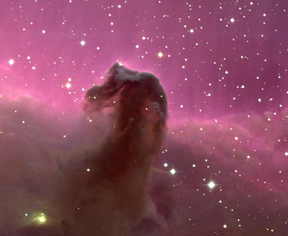.............................................................................................................................................................
What Does the Bible Mean by the Term "New
Heavens"?
BY RANDY
ALCORN
Question from a reader:
What
does the Bible mean by the term new heavens? And why
is it referred to heavens (plural) but then switches to heaven (singular)?
Answer from Randy Alcorn:
When Genesis 1:1 speaks of God’s creating “the
heavens and the earth,” the words are synonymous with what we mean by
universe.
Heavens
refers to the realms above the earth: atmosphere, sun, moon, and stars, and all
that’s in outer space.
Then in Isaiah, God says, “Behold, I will create new heavens
and a new earth” (Isaiah 65:17).
This
corresponds to Genesis 1:1, indicating
a complete renewal of the same physical universe God first created.
Revelation 21:1-2 says,
“I saw a new heaven and a new earth, for the first heaven and the first
earth had passed away. . . I saw the Holy City, the new Jerusalem, coming down
out of heaven from God.”
Because
“new heaven” (singular) is used here, some think it’s God’s dwelling
place that passes away and is renewed.
But the
present Heaven is described as unshakable in ways the physical universe isn’t (Hebrews 12:26-28).
The “new
heaven” in Revelation 21:1 apparently
refers to exactly the same atmospheric and celestial heavens as “heavens”
does in Genesis 1:1.
It also
corresponds to the “new heaven(s)” of Isaiah 65:17, Isaiah 66:22, and 2 Peter 3:13.
In Revelation 21:2 we see God’s dwelling
place isn’t replaced but relocated when the New Jerusalem is brought down to
the New Earth.
The new
heavens will surely be superior to the old heavens, which themselves are filled
with untold billions of stars and perhaps trillions of planets.
God’s
light casts the shadows we know as stars, the lesser lights that point to God’s
substance.
As the
source is greater than the tributary, God, the Light, is infinitely greater
than those little light-bearers we know as stars.
The
Bible’s final two chapters make clear that every aspect of the new creation
will be greater than the old.
Just as
the present Jerusalem isn’t nearly as great as the New Jerusalem, no part of
the present creation — including the earth and the celestial heavens — is as
great as it will be in the new creation.
While
some passages suggest that the universe will wear out and the stars will be
destroyed, others indicate that the stars will exist forever (Psalm 148:3-6).
Is this
a contradiction? No. We too will be destroyed by death, yet we will last
forever.
The
earth will be destroyed in God’s judgment, yet it will last forever.
In
exactly the same way, the stars will be destroyed, yet they will last forever.
Based on the redemptive work of Christ, God will resurrect them.
Earth
is the first domain of mankind’s stewardship, but it is not the only domain.
Because
the whole universe fell under mankind’s sin, we can conclude that the whole
universe was intended to be under mankind’s dominion.
If so,
then the entire new universe will be ours to travel to, inhabit, and rule — to
God’s glory.
Do I
seriously believe the new heavens will include new galaxies, planets, moons,
white dwarf stars, neutron stars, black holes, and quasars? Yes.
The
fact that they are part of the first universe and that God called them “very
good” means they will be part of the resurrected universe.
When I
look at the Horsehead Nebula and ask myself what it’s like there, I think that
one day I’ll know.
Just as
I believe this “self-same body” — as the Westminster Confession put it — will
be raised and the “self-same” Earth will be raised, I believe the “self-same”
Horsehead Nebula will be raised.
Why?
Because as part of the present heavens, it will be raised as part of the new
heavens.
Will
the new planets be mere ornaments, or does God intend for us to reach them one
day?
Even
under the Curse, we’ve been able to explore the moon, and we have the
technology to land on Mars.
What
will we be able to accomplish for God’s glory when we have resurrected minds,
unlimited resources, complete scientific cooperation, and no more death?
Will
the far reaches of our galaxy be within reach? And what about other galaxies,
which are plentiful as blades of grass in a meadow?
We will
expand the borders of righteous mankind’s Christ-centered dominion, not as
conquerors who seize what belongs to others, but as faithful stewards who will
occupy and manage the full extent of God’s physical creation.
For more information on the subject of Heaven, see Randy Alcorn’s
book Heaven.
Randy
Alcorn
(@randyalcorn) is the author
of fifty-some books and the
founder and director of Eternal
Perspective Ministries.

No comments:
Post a Comment